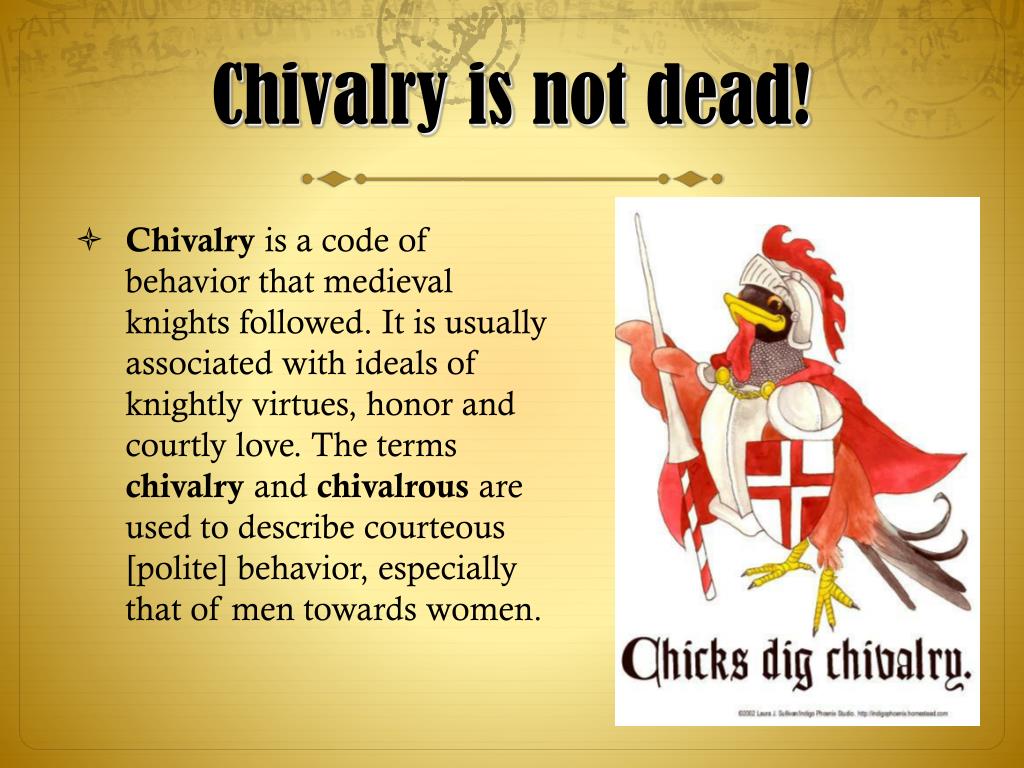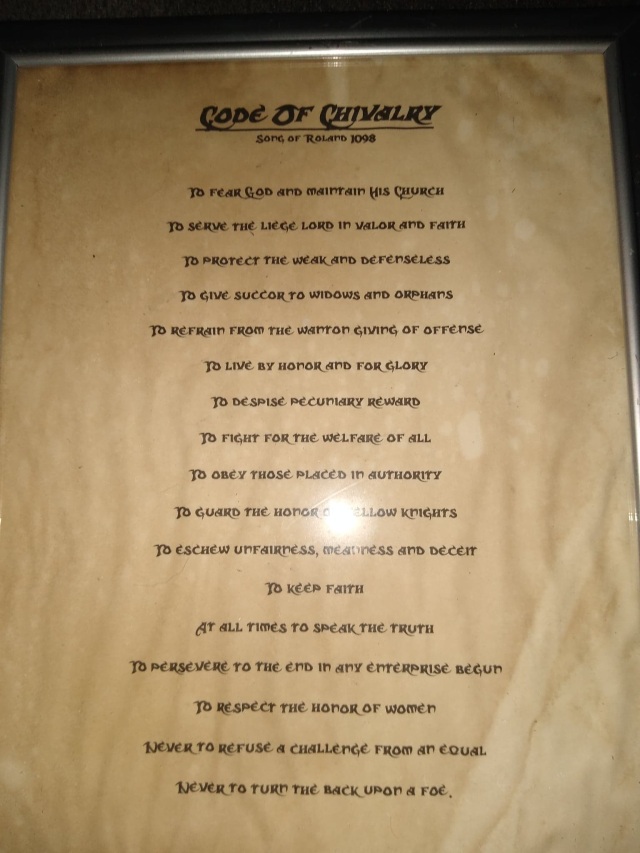

Digby’s mission, in encouraging a return to chivalry through his writings, was to “revive the principles of loyalty and generosity and honour that were almost extinct amongst mankind.” True knights and honourable gentlemen instinctively recognised what was right through ‘the wisdom of the heart’ and pursued it regardless of self-interest.ĭigby saw himself as a Platonist who believed in “absolute standards of good, right and beauty.” He believed that while the word ‘chivalry’ and the romantic stories surrounding its practice sprang from the Middle Ages, the notion of a higher moral code of heroic behaviour for men actually originated in ancient Greece and Rome. 1800 – 1880), attacked ‘that principle, the curse of modern times, which leads men to idolise the reason and understanding, and to neglect and even despise the virtues of the heart’. One of the most famous and fervent proponents of the new chivalry, Kenelm Henry Digby (c.

This code has had a wide-ranging effect on Britain’s cultural attitudes and informed popular codes in use still today, such as the idea of gentlemanly or sportsmanlike behaviour, manners and etiquette and charitable giving. It was from the medieval knightly ideal that the Victorian gentleman’s code of behaviour derived. Towards ladies above all, the knight was to be gracious and gentle.Īlthough the mediaeval-style knight eventually disappeared, the moral codes of knightly chivalry – the value of a man’s honour, respect for women and a concern for those less fortunate – were to gain unprecedented popularity many centuries later in Britain when chivalric practice reached its zenith. Towards his fellow Christians and countrymen, at least, the knight was expected to be merciful, humble, and courteous. Whether the case in reality or not, the chivalrous knight was idealised as brave but fair in battle, loyal to his king and God, and willing to sacrifice himself for the greater good. Heavily influenced by Christianity and wedded to the Church through knightly involvement in the Crusades, chivalry came to be understood as a moral, religious and social code of knightly conduct. The term chivalry originated in the Middle Ages in reference to the mounted knight and comes from the original French word chevalier (mounted knight) and the Latin ceballarius (horseman). However, what do most of us truly know these days of what chivalry is and has been? At the mention of chivalry, many women will sigh that “chivalry is dead” and lament the declining opportunities of being rescued by the fabled “knight in shining armour”.

Today, the terms chivalry and chivalrous are used to describe unusually courteous behaviour, especially that of men towards women.


 0 kommentar(er)
0 kommentar(er)
